Welcome to our comprehensive set of MCQ on Experiential Learning. We’ve made every effort to compile MCQs based on Experiential Learning that could potentially test your knowledge and spark your curiosity about the future of education.
These MCQ on Experiential Learning have been designed to meet the standards and complexity of various state and central-level teaching exams, drawing inspiration from previous year exams. If you find these questions a bit tough, don’t worry!
We warmly invite you to explore our enriching article, “Experiential Learning Activities: Study is fun”. This topic holds significant value in the educational guidelines of esteemed institutions like CBSE. This resource is designed to bolster your knowledge and help you conquer any uncertainties.

“Just believe in yourself. Even if you don’t, pretend that you do and, at some point, you will.” Venus Williams
Remember, a strong desire and careful planning always yield desirable results. There’s no universal strategy for success, and there are countless ways to reach your goal. One effective strategy is to continuously monitor your progress by attempting these MCQs.
So, embark on this exciting journey of learning and discovery of MCQ on Experiential Learning, and let’s make studying fun together!
MCQ on Experiential Learning
1. What learning method not only involves participants in the process but also encourages them to reflect and gain valuable knowledge and insights critically?
- Experiential Learning
- Collaboration
- Passive Learning
- Observation
Answer: MCQ on Experiential Learning
(1) Experiential Learning.
Experiential learning involves actively engaging participants in hands-on experiences, allowing them to learn through direct involvement in real-life situations. It is a dynamic and learner-centered approach that fosters practical skills, critical thinking, and deeper understanding.
2. Which components of a pre-service teacher education program offer the most opportunities for implementing Experiential Activity-Based Learning Pedagogy?
- Pedagogy courses through the use of discussions
- Foundation courses through critical exposure
- Reflective reading based on great thinker’s work
- Internship through school attachment
Answer: MCQ on Experiential Learning
(4) Internship through school attachment.
During the internship, pre-service teachers have the opportunity to engage in real classroom settings, work with students, and apply the pedagogical theories and concepts they have learned in their coursework.
3. Which of the following is the initial stage and steps of Experiential Learning Cycle?
- Generalizing
- Experiencing
- Processing
- Publishing
Answer: MCQ on Experiential Learning
(2) Experiencing.
This is the first stage where learners are directly involved in a concrete experience or activity. It serves as the foundation for the entire learning process.
4. Madhu is angry and upset after an argument with her boss. After reaching home, she is harshly shouting at her son for not completing the homework. Here Madhu is using which ego defense mechanism?
- Sublimation
- Identification
- Repression
- Displacement
Answer: MCQ on Experiential Learning
(4) Displacement.
Displacement involves redirecting one’s emotions, especially negative or unacceptable ones, from the source to a substitute target. Displacement allows individuals to cope with emotions by transferring them to a less threatening target.
5. Rizwan was often rejected by his parents, as a result, he mistrusts other people and treats them with hostility, which leads to their rejection of him. This cycle of rejection, mistrust rejection, illustrates?
- Self-efficacy
- Identification
- Displacement
- Reciprocal determinism
Answer: MCQ on Experiential Learning
(4) Reciprocal determinism.
The cycle of rejection, mistrust, and rejection that Rizwan experiences illustrates the concept of reciprocal determinism. This is the theory that a person’s behavior is influenced by and influences their factors and the social environment. Psychologist Albert Bandura proposed it as part of his social learning theory.
6. Lisa is interested in exploring the daily routines and habits of people with Obsessive Compulsive Disorder (OCD). She wants to collect data from a large sample quickly. Which pedagogical method is the best suited for her research?
- Observation
- Case studies
- Surveys
- Experiments
Answer: MCQ on Experiential Learning
(3) Surveys.
Surveys usually consist of a set of questions, that are designed to measure the respondent’s attitudes, behaviors, preferences, or characteristics.
7. Emile was bugged by the fact that how electricity flows in the wire even when we can’t see it? This confusion stayed on with him. They need concrete information to feel a topic and learn it. This is called?
- Assimilating
- Diverging
- Accommodating
- Converging
Answer: MCQ on Experiential Learning
(2) Diverging.
Emile’s learning style is diverging. This is one of the four types of learning styles proposed by “David Kolb” in his experiential learning model. Diverging learners prefer to observe and reflect on concrete experiences. They need concrete information to feel a topic and learn it.
8. What is the key aspect of Experiential Learning?
- Learning is imposed on the learners.
- Learning is implied when done through experience.
- Learners are passive recipients of knowledge.
- Learners do not make connections based on their prior knowledge.
Answer: MCQ on Experiential Learning
(2) Learning is implied when done through experience.
9. Which curriculum framework emphasizes designing task-based learning experiences that challenge students’ thinking and encourage independent thought and action?
- NCF 2000
- NCF 2005
- NCF 2010
- NCF 2015
Answer: MCQ on Experiential Learning
(2) NCF 2005
10. Hari tries to synthesize the information to find a unique solution to a problem.
- concrete experience
- Active experimentation
- Abstract conceptualization
- Reflective Observation
Answer: MCQ on Experiential Learning
(3) Abstract conceptualization.
In Abstract Conceptualization, learner creates theories to explain his experiences. In this stage, the learner gathers and analyzes the information and draws conclusions.
11. Salman took “Thematic Apperception Test” (TAT) as a part of his overall vocational assessment. His score on this test is most likely to reveal his level of
- Competence motivation
- Need for achievement
- Self-actualization
- Emotional Intelligence
Answer: MCQ on Experiential Learning
(2) Need for achievement.
People with a high need for achievement tend to set realistic but difficult goals, seek feedback on their performance, and persist in the face of difficulties
12. A teacher asks her learners to collect words/phrases on various aspects they see and notice in their markets and streets. Later, the learners write the words and phrases according to the category and discuss them in the class. What is this practice known as?
- Active vocabulary
- Thematic vocabulary learning
- Topic words learning
- Genre-based words
Answer: MCQ on Experiential Learning
(1) Active vocabulary
The activity described in the question encourages students to actively engage with vocabulary by collecting words and phrases from their surroundings (markets and streets), categorizing them, and then discussing them in class.
13. In the context of Experiential Activity-Based Pedagogy in Teaching, which of the following best describes the sequence of steps involved in Experiential Learning Activities?
- Evaluate -> Facilitate -> Prepare -> Plan
- Plan -> Prepare -> Facilitate -> Evaluate
- Facilitate -> Plan -> Evaluate -> Prepare
- Prepare -> Evaluate -> Plan -> Facilitate
Answer: MCQ on Experiential Learning
(2) Plan -> Prepare -> Facilitate -> Evaluate
This sequence ensures a systematic and effective approach to experiential learning, where students engage in meaningful activities, reflect on their experiences and apply their knowledge in real-world contexts.
14. According to the NEP 2020 pedagogy for different stages, which stage of Experiential Learning Activities involves students taking a fun course that gives hands-on experience such as vocational crafts, carpentry, electric work, metal work, gardening, pottery making, etc.?
- Foundational Stage (Age: 3 – 8 years)
- Preparatory Stage (Age: 8 – 11 years)
- Middle Stage (Age: 11 – 14 years)
- Secondary Stage (Age: 14 – 18 years)
Answer: MCQ on Experiential Learning
(3) Middle Stage (Age: 11 – 14 years)
During the Middle Stage of education (ages 11 – 14 years), the NEP 2020 emphasizes the importance of experiential learning activities. The NEP 2020 aims to integrate vocational education into the school curriculum from the Middle Stage onwards, allowing students to explore and develop skills in different fields alongside their academic studies.
15. Vinayak has a piece of candy that he is holding in his mouth. After a while, the candy does not taste as strong as it did when you first tasted it. What has happened?
- Sensory adaptation
- Sublimation perception
- Threshold adaptation
- Perceptual defence
Answer: MCQ on Experiential Learning
(1) Sensory adaptation.
This is a phenomenon in which the body’s sensory responses to an external stimulus decrease over time. It occurs as the brain adjusts to a particular stimulus, becoming less sensitive or responsive.
16. The teacher has given a task to sunita to memorize a list of words. The words placed at the beginning and at the end of the list are better remembered than the words in the middle. What Sunita experiences here:
- Working memory mechanism
- Serial position effect
- Procedural knowledge
- Chunk
Answer: MCQ on Experiential Learning
(2) Serial position effect.
The serial position effect was first demonstrated by Hermann Ebbinghaus, who studied his own memory by memorizing lists of nonsense syllables. He found that the probability of recalling any syllable depended on its position in the list.
17. A teacher suggests that students make a table recording the number of buckets of water used by students in a week. After this activity, she initiates a discussion on water usage and conservation. Which method of learning is the teacher encouraging in the class?
- Deductive method
- Case study
- Inquiry method
- Problem-solving method
Answer: MCQ on Experiential Learning
(3) Inquiry method.
Inquiry learning allows students to apply their knowledge to real-world situations, develop new skills, and discover new insights. Inquiry learning can take many forms, such as laboratory experiments, internships, field trips, study abroad, research projects, and artistic performances.
18. After Sahil’s parents told him not to take his father’s car to the movies. He did anyway as a result after this his parents took away Sahil’s car key and told him he was not permitted to drive for a month. Taking away the car keys and not letting Sahil drive for a month exemplifies:
- Positive reinforcement
- Negative reinforcement
- Positive punishment
- Negative punishment
Answer: MCQ on Experiential Learning
(4) Negative punishment.
Negative punishment is different from positive punishment, which involves adding something unpleasant to reduce behavior. Negative punishment is based on the theory of operant conditioning, which states that a person’s behavior can be influenced by the consequences that follow it.
19. Rahul has concrete experience and a reflective observation as dominant hearing abilities. Viewing concrete situations from different view-point has broad cultural interests and is imaginative and emotional. His experimental learning style is:
- Assimilating
- Converging
- Diverging
- Accommodating
Answer: MCQ on Experiential Learning
(3) Diverging.
This is one of the four types of learning styles proposed by David Kolb in his experiential learning theory. Diverging learners prefer to observe and reflect on concrete experiences. They are interested in exploring different perspectives and generating new ideas.
20. The School organized an excursion trip to visit the National Park where students could see various villages, birds & animals. Which medium could you ask the students to mark the state and names they had visited?
- On a graph
- On a map
- On a timeline
- On a poster
Answer: MCQ on Experiential Learning
(2) On a map
Maps are designed to accurately depict the geographical features of an area, including states, villages, rivers, and other landmarks. This helps in accurately marking the visited locations.
21. A teacher asks her learners to discuss in groups of four, jot down ideas, and then develop them in an outline to write a paragraph. Learners then edit the paragraph into a final draft. Which strategy of writing does the teacher follow here?
- Product approach
- Displacement approach
- Group approach
- Process approach
Answer: MCQ on Experiential Learning
(4) Process approach.
This approach involves multiple stages such as brainstorming, outlining, drafting, and editing, which aligns with the steps described in the question.
22. Consider a scenario where a student experiences joy while playing video games, but feels a sense of unhappiness when not engaged in gaming. Which psychological theory best explains this phenomenon?
- Opponent process theory
- Cognitive theory
- Incentive theory
- Expectancy value
Answer: MCQ on Experiential Learning
(1) Opponent process theory.
This is a psychological and neurological model that explains how opposing processes influence the human visual system, emotions, and motivations.
23. Ravi buys a lottery ticket every Friday with the expectation that he is going to win some money. His behavior illustrates:
- Competence motivation
- Incentive motivation
- Self-actualization
- Drive motivation
Answer: MCQ on Experiential Learning
(2) Incentive motivation
Incentive motivation is the drive to pursue rewards and avoid punishments.
24. After dealing kindly with several children who acted very rudely teacher was impatient with his/her next student. The tendency of that student to think that the teacher is a very impatient person rather than just having a bad day exemplifies:
- Stereotyping
- Attribution error
- Reciprocity norm
- Exposure effect
Answer: MCQ on Experiential Learning
(2) Attribution error.
This exemplifies attribution error. This is a cognitive bias that refers to the systematic errors made when people evaluate or try to find reasons for their own and others’ behaviors.
25. A teacher took students to the school playground and asked them to count and classify the different types of flowers they see. The teacher is trying to do the following?
- Applying project approach
- Applying growing approach
- Applying connectivity approach
- Applying educational approach
Answer: MCQ on Experiential Learning
(3) Applying the connectivity approach.
It is based on the theory of connectivism, which states that learning is a network-creation process that involves making connections between ideas, experiences, and perspectives.
26. After teaching the lesson on animals, the teacher arranged a tour of her class to zoo. This would help the students to:
- Develop skills in animal protection.
- Have a change in the daily timetable routine.
- Co-relate classroom learning to real-life situations.
- Develop sensitization about how to domesticate animals.
Answer: MCQ on Experiential Learning
(3) Co-relate classroom learning to real-life situations
Arranging a tour of the zoo after teaching a lesson on animals would indeed help students with Visual Learning, Contextualization, Connection to Prior Knowledge, Engagement and Interest, Application of Knowledge, Experiential Learning, and Memory Retention.
27. Which of the following was the aim of the activity-based education on craft recommended by “Mahatma Gandhi”?
- Meeting the expenses of the teacher’s salaries
- Creation of a specialized class of craftsmen
- Dignity of labour
- Minimization of drift of rural youth to the cities in search of jobs
Answer: MCQ on Experiential Learning
(2) Creation of a specialized class of craftsmen
Gandhi’s vision of education was deeply rooted in his philosophy of self-reliance, community empowerment, and the dignity of labor. He believed that education should be practical, aimed at fostering independence, and should connect individuals with their communities.
28. How do learners make connections in Experiential Learning?
- Based on their prior knowledge and past experiences.
- Based on the information provided in textbooks.
- Based on the lectures given by the teacher.
- Based on random facts and figures.
Answer: MCQ on Experiential Learning
(1) Based on their prior knowledge and past experiences.
Learners make connections in Experiential Learning by actively engaging with their prior knowledge, relating new experiences to what they already know, building schema, reflecting on their learning, and applying their knowledge in various contexts.
29. A pleasant experience has a positive effect on the learning process. This rule emphasizes the role of reward in the learning process. “Thorndike” called it:
- Law of response
- Law of expediency
- Law of practice
- Law of effect
Answer: MCQ on Experiential Learning
(4) Law of effect.
The law of effect is an important concept in psychology, as it helps us understand how learning occurs through the interaction between behavior and environment. According to this principle, behaviors that are followed by positive or satisfying outcomes are more likely to be repeated, while behaviors that are followed by negative or unsatisfying outcomes are less likely to be repeated. The law of effect was proposed by Edward Thorndike in 1898, based on his experiments with cats in puzzle boxes.
30. Teaching models used in Experiential Learning are?
- Inquiry Training Model
- Concept Attaining Model
- Both of them
- None of them
Answer: MCQ on Experiential Learning
(3) Both of them.
Inquiry Training Model and Concept Attainment Model are two examples of teaching models that are based on the Experiential Learning Theory proposed by “David Kolb”.
Please let us know through the comment section if you want any topic to be discussed in this blog. We will try to provide an article on that subject as early as possible.
Please leave your valuable comment in the comment box! Your comments are valuable to us.
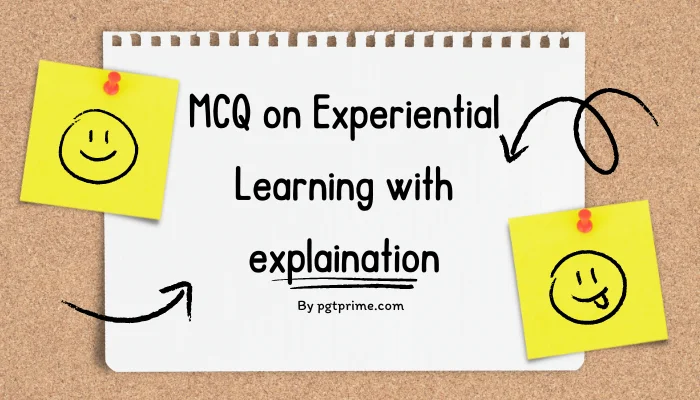


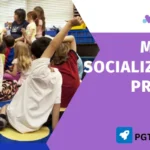
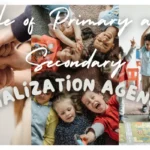
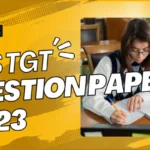
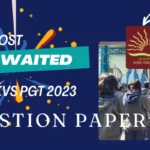
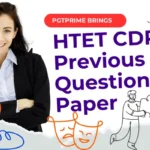
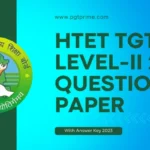
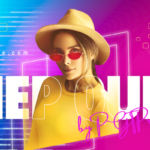
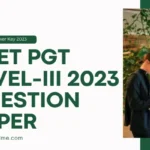

Very nice